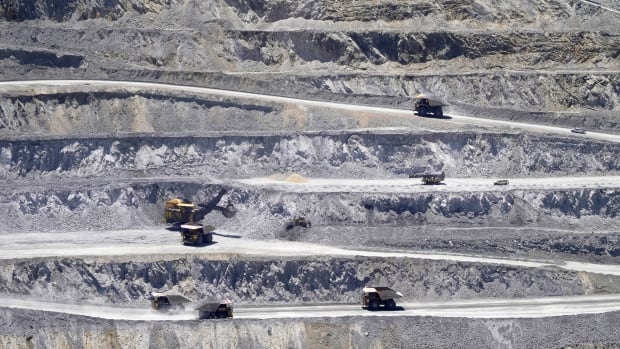Canada will need to speed up regulatory decisions on critical mineral projects if it wants to become a global leader in battery manufacturing, electric vehicles, wind turbines and solar panels, says a new national strategy being released today.
“Simply put, there is no green energy transition without critical minerals,” the federal government’s latest critical minerals strategy says.
“[The government of Canada] recognizes that to meet our ambitious climate and economic objectives to transition to a net-zero economy, additional mechanisms must be in place to expedite and facilitate strategic critical mineral projects from investment and funding opportunities, through regulatory approvals and development, to production.”
Natural Resources Minister Jonathan Wilkinson unveiled the strategy in Vancouver on Friday.
Minerals like lithium, graphite, nickel, cobalt and copper are critical ingredients for electric vehicle, computer chip and weapons manufacturing. With demand for low- and no-emissions technology expected to skyrocket as the world moves to a post-carbon economy, Friday’s strategy foreshadows shortages of these critical materials — or what it calls “non-like-minded countries” weaponizing access to precious minerals.
Although China isn’t mentioned by name in Natural Resources Canada’s strategy, some observers have warned that Beijing could cut off access to critical minerals to foster its own high-tech industries. Currently, China controls most of the world’s critical mineral processing.
To counter Beijing’s supremacy in this field, Canada, the U.S. and its allies have committed to boosting extraction, processing, manufacturing and recycling of critical minerals.
Increasing extraction will mean more Canadian mines. But before any new mining project can proceed, it must undergo a rigorous environmental review and permitting process — sometimes more than once.
The new strategy document recognizes that faster environmental reviews and regulatory oversight are needed to meet the challenge — and that Canada’s current patchwork of project review processes isn’t up to the task.
“For major development projects where both federal and provincial impact or environmental assessments are required,” says the strategy document, “the Government of Canada is committed to meeting the objective of ‘one project, one assessment.'”
Aside from making sure projects cross the finish line, the strategy calls for “meaningful participation” by Indigenous communities in decisions on project development and the benefits that flow from it. It also recognizes that the government is going to have to make significant investments in transportation and electricity infrastructure to access these critical minerals.
“New infrastructure investments aimed at unlocking new mineral projects in resource-rich regions — including roads, rail, and ports — are needed to help Canada’s mining industry provide the minerals and metals required to reach net zero by 2050,” says the document.
The strategy also signals Canada wants to work with international allies to develop a tracing process to identify trade in so-called “conflict minerals.” Such a standard, it says, could “prevent products from conflict, child labour and environmentally poor operations from entering the supply chains.”
The strategy doesn’t come with any new money. But in the last budget, the federal government committed up to $3.8 billion over eight years to pursuing a critical minerals strategy — including a 30 per cent critical mineral exploration tax.
That same budget also earmarked money for working with provinces and territories to help developers navigate the regulatory process, especially in the North.
In October, Wilkinson and Innovation Minister François-Philippe Champagne announced that the federal government would prevent foreign state-owned enterprises from owning and participating in Canada’s critical mineral sector.
Shortly after that announcement, the Canadian government ordered three Chinese resource companies to sell their interests in Canadian critical minerals. The government introduced amendments Wednesday to modernize the Investment Canada Act.


